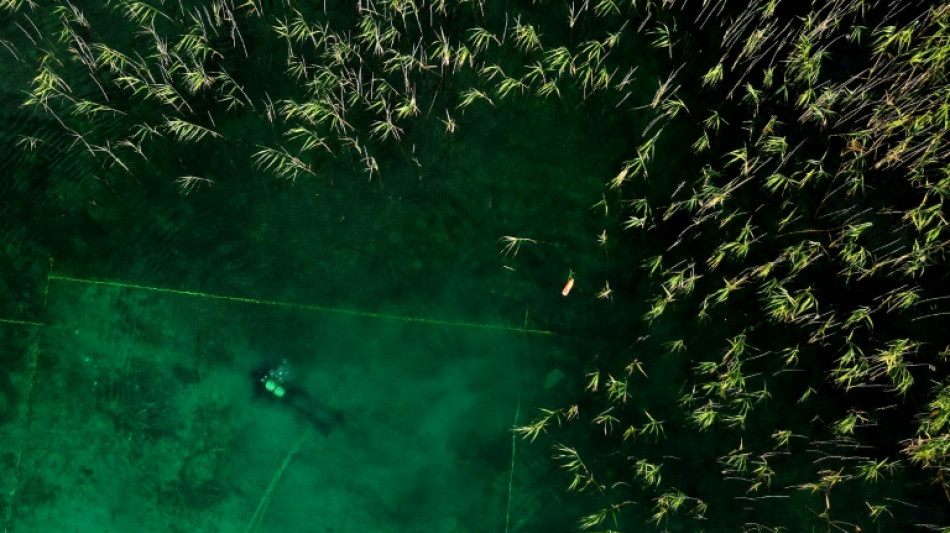
-
 Atletico go third with comfortable win at Girona
Atletico go third with comfortable win at Girona
-
Schwarz breaks World Cup duck with Alta Badia giant slalom victory

-
 Salah unaffected by Liverpool turmoil ahead of AFCON opener - Egypt coach
Salah unaffected by Liverpool turmoil ahead of AFCON opener - Egypt coach
-
Goggia eases her pain with World Cup super-G win as Vonn takes third

-
 Goggia wins World Cup super-G as Vonn takes third
Goggia wins World Cup super-G as Vonn takes third
-
Cambodia says Thai border clashes displace over half a million

-
 Kremlin denies three-way US-Ukraine-Russia talks in preparation
Kremlin denies three-way US-Ukraine-Russia talks in preparation
-
Williamson says 'series by series' call on New Zealand Test future

-
 Taiwan police rule out 'terrorism' in metro stabbing
Taiwan police rule out 'terrorism' in metro stabbing
-
Australia falls silent, lights candles for Bondi Beach shooting victims

-
 DR Congo's amputees bear scars of years of conflict
DR Congo's amputees bear scars of years of conflict
-
Venison butts beef off menus at UK venues

-
 Cummins, Lyon doubts for Melbourne after 'hugely satsfying' Ashes
Cummins, Lyon doubts for Melbourne after 'hugely satsfying' Ashes
-
'It sucks': Stokes vows England will bounce back after losing Ashes

-
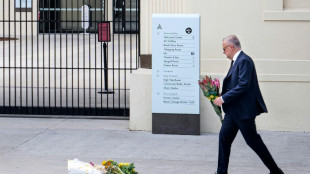 Australia probes security services after Bondi Beach attack
Australia probes security services after Bondi Beach attack
-
West Indies need 462 to win after Conway's historic century

-
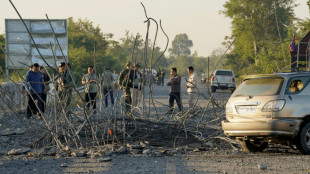 Thai border clashes displace over half a million in Cambodia
Thai border clashes displace over half a million in Cambodia
-
Australia beat England by 82 runs to win third Test and retain Ashes

-
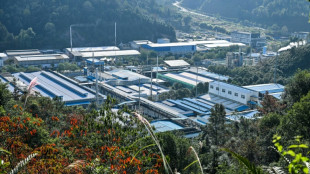 China's rare earths El Dorado gives strategic edge
China's rare earths El Dorado gives strategic edge
-
Japan footballer 'King Kazu' to play on at the age of 58

-
 New Zealand's Conway joins elite club with century, double ton in same Test
New Zealand's Conway joins elite club with century, double ton in same Test
-
Australian PM orders police, intelligence review after Bondi attack
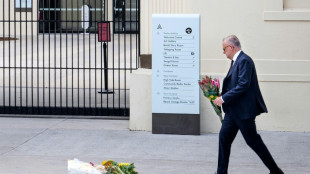
-
 Durant shines as Rockets avenge Nuggets loss
Durant shines as Rockets avenge Nuggets loss
-
Pressure on Morocco to deliver as Africa Cup of Nations kicks off

-
 Australia remove Smith as England still need 126 to keep Ashes alive
Australia remove Smith as England still need 126 to keep Ashes alive
-
Myanmar mystics divine future after ill-augured election
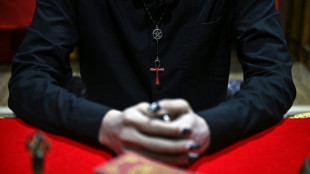
-
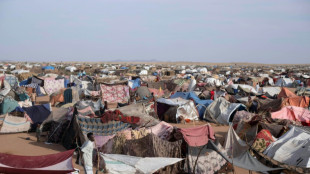 From the Andes to Darfur: Colombians lured to Sudan's killing fields
From the Andes to Darfur: Colombians lured to Sudan's killing fields
-
Eagles win division as Commanders clash descends into brawl

-
 US again seizes oil tanker off coast of Venezuela
US again seizes oil tanker off coast of Venezuela
-
New Zealand 35-0, lead by 190, after racing through West Indies tail

-
 How Can Gum Disease Lead to Tooth Loss in Kyle, TX?
How Can Gum Disease Lead to Tooth Loss in Kyle, TX?
-
West Indies 420 all out to trail New Zealand by 155

-
 Arteta tells leaders Arsenal to 'learn' while winning
Arteta tells leaders Arsenal to 'learn' while winning
-
Honour to match idol Ronaldo's Real Madrid calendar year goal record: Mbappe

-
 Dupont helps Toulouse bounce back in Top 14 after turbulent week
Dupont helps Toulouse bounce back in Top 14 after turbulent week
-
Mbappe matches Ronaldo record as Real Madrid beat Sevilla

-
 Gyokeres ends drought to gift Arsenal top spot for Christmas
Gyokeres ends drought to gift Arsenal top spot for Christmas
-
Arsenal stay top despite Man City win, Liverpool beat nine-man Spurs

-
 US intercepts oil tanker off coast of Venezuela
US intercepts oil tanker off coast of Venezuela
-
PSG cruise past fifth-tier Fontenay in French Cup

-
 Isak injury leaves Slot counting cost of Liverpool win at Spurs
Isak injury leaves Slot counting cost of Liverpool win at Spurs
-
Juve beat Roma to close in on Serie A leaders Inter

-
 US intercepts oil tanker off coast of Venezuela: US media
US intercepts oil tanker off coast of Venezuela: US media
-
Haaland sends Man City top, Liverpool beat nine-man Spurs

-
 Epstein victims, lawmakers criticize partial release and redactions
Epstein victims, lawmakers criticize partial release and redactions
-
Leverkusen beat Leipzig to move third in Bundesliga

-
 Lakers guard Smart fined $35,000 for swearing at refs
Lakers guard Smart fined $35,000 for swearing at refs
-
Liverpool sink nine-man Spurs but Isak limps off after rare goal

-
 Guardiola urges Man City to 'improve' after dispatching West Ham
Guardiola urges Man City to 'improve' after dispatching West Ham
-
Syria monitor says US strikes killed at least five IS members


Archaeologists uncover Europe's oldest stilt village
Beneath the turquoise waters of Lake Ohrid, the "Pearl of the Balkans", scientists have uncovered what may be one of Europe's earliest sedentary communities, and are trying to solve the mystery of why it sheltered behind a fortress of defensive spikes.
A stretch of the Albanian shore of the lake once hosted a settlement of stilt houses some 8,000 years ago, archaeologists believe, making it the oldest lakeside village in Europe discovered to date.
Radiocarbon dating from the site puts it at between 6000 and 5800 BC.
"It is several hundred years older than previously known lake-dwelling sites in the Mediterranean and Alpine regions," said Albert Hafner, a professor of archaeology from Switzerland's University of Bern.
"To our knowledge, it is the oldest in Europe," he told AFP.
The most ancient other such villages were discovered in the Italian Alps and date to around 5000 BC, said the expert in European Neolithic lake dwellings.
Hafner and his team of Swiss and Albanian archaeologists have spent the past four years carrying out excavations at Lin on the Albanian side of Lake Ohrid, which straddles the mountainous border of North Macedonia and Albania.
The settlement is believed to have been home to between 200 and 500, with houses built on stilts above the lake's surface or in areas regularly flooded by rising waters.
- Fortress of spikes -
And it is slowly revealing some astonishing secrets.
During a recent dive, archaeologists uncovered evidence suggesting the settlement was fortified with thousands of spiked planks used as defensive barricades.
"To protect themselves in this way, they had to cut down a forest," said Hafner.
But why did the villagers need to build such extensive fortifications to defend themselves? Archaeologists are still searching for an answer to the elusive question.
Researchers estimate that roughly 100,000 spikes were driven into the bottom of the lake off Lin, with Hafner calling the discovery "a real treasure trove for research".
Lake Ohrid is one of the oldest lakes in the world and has been around for more than a million years.
Assisted by professional divers, archaeologists have been picking through the bottom of the lake often uncovering fossilised fragments of wood and prized pieces of oak.
- 'Like a Swiss watch' -
Analysis of the tree rings helps the team reconstruct the daily life of the area's inhabitants -- providing "valuable insights into the climatic and environmental conditions" from the period, said Albanian archaeologist Adrian Anastasi.
"Oak is like a Swiss watch, very precise, like a calendar," said Hafner.
"In order to understand the structure of this prehistoric site without damaging it, we are conducting very meticulous research, moving very slowly and very carefully," added Anastasi, who heads the team of Albanian researchers.
The lush vegetation at the site makes the work painstaking slow at times.
"Building their village on stilts was a complex task, very complicated, very difficult, and it's important to understand why these people made this choice," said Anastasi.
For the time being, scientists say it is possible to assume that the village relied on agriculture and domesticated livestock for food.
"We found various seeds, plants and the bones of wild and domesticated animals," said Ilir Gjepali, an Albanian archaeology professor working at the site.
But it will take another two decades for site to be fully explored and studied and for final conclusions to be drawn.
According to Anastasi, each excavation trip yields valuable information, enabling the team to piece together a picture of life along Lake Ohrid's shores thousands of years ago -- from the architecture of the dwellings to the structure of their community.
"These are key prehistoric sites that are of interest not only to the region but to the whole of southwest Europe," said Hafner.
B.Finley--AMWN



